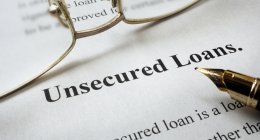In Singapore, where the cost of living continues to rise and daily expenses stretch many households, financial preparedness has never been more important. A sudden hospital bill, urgent home repair, or car breakdown can turn life upside down if you are not ready for it. In such moments, people often find themselves considering two common options turning to a fast cash loan or drawing from an emergency fund. Both serve as safety nets, but they function in very different ways. The question many Singaporeans ask is this: which option is better, and under what circumstances?
This article will explore the differences between a fast cash loan and an emergency fund, examine their respective pros and cons, and provide guidance on how to balance the two to build stronger financial resilience in Singapore.
Understanding Fast Cash Loans in Singapore
A fast cash loan, sometimes referred to as an emergency payday loan Singapore residents might rely on, is a short term borrowing option designed to provide quick access to funds. It is commonly offered by banks and licensed money lenders in Singapore and is meant for urgent financial needs where time is of the essence. Unlike traditional loans that might take days or weeks to process, these loans are structured to deliver money within hours or at most a day.
The mechanics are simple. You apply through a bank or a licensed money lender Singapore authorities have approved, and once approved, the money is disbursed directly into your account. The loan can range from a few hundred dollars to several thousand, depending on your income level, credit score, and repayment capacity. Interest rates vary but are generally higher than those for a personal loan because the lender takes on greater risk by offering quick access without extensive checks.
If you are considering the ease of applying, you may also want to explore a guide to easy loan in Singapore to understand available options.
What is an Emergency Fund?
An emergency fund, on the other hand, is money you set aside over time specifically to cover unexpected expenses. It is a pool of savings you can tap into when emergencies strike. In Singapore, financial planners often recommend setting aside at least three to six months of living expenses in an emergency fund, though some suggest more if your income is variable or if you have dependents.
The strength of an emergency fund lies in the fact that it is your money. There are no applications, no waiting periods, and no interest costs. You can access it immediately without incurring debt. The only discipline required is to build and maintain it, which can be challenging for many given the competing financial commitments in Singapore, such as mortgage payments, childcare, and daily living costs.
If you want to better understand availability, consider reading about how quickly you can get a personal loan in Singapore.
Comparing the Two: Fast Cash Loan vs Emergency Fund
Both options aim to solve the same problem providing money when you need it most. But the way they do so differs significantly. Let us look at the advantages and disadvantages of each.
Advantages of a Fast Cash Loan
- Speed and accessibility: A fast cash loan can provide funds within hours, which is vital during urgent situations.
- No need for prior savings: Even if you have no emergency fund, you can still access cash when a crisis arises.
- Flexibility: The borrowed sum can be used for any purpose, from paying a hospital bill to repairing your vehicle.
Disadvantages of a Fast Cash Loan
- Interest and fees: Loans come with costs, and the quicker the disbursement, the higher the rates often are.
- Debt obligations: You will need to repay the loan, sometimes in a short timeframe, which may strain your budget.
- Risk of dependency: Relying too often on fast cash loans can lead to a cycle of borrowing.
Advantages of an Emergency Fund
- No debt: Since the money is yours, you do not owe anyone and there are no interest payments.
- Immediate access: Funds are available instantly whenever you need them.
- Peace of mind: Knowing that you have a financial buffer reduces stress and improves confidence in handling crises.
Disadvantages of an Emergency Fund
- Requires discipline: Building one takes time, patience, and consistent saving habits.
- Opportunity cost: Money kept in an emergency fund might grow slowly compared to invoice financing or investments.
- Risk of depletion: If you face repeated emergencies without replenishing it, the fund may not last.
Which is Better for Singaporeans?
The answer depends on your situation. If you already have a strong emergency fund, it is usually the better option because it does not involve debt. You can simply dip into your savings and avoid interest payments. However, if you have not built up sufficient reserves, a fast cash loan can serve as a temporary lifeline.
For example, imagine you face a sudden medical bill of $3,000. If you have an emergency fund of $5,000, you can settle the bill immediately and still have money left for other unexpected needs. But if you only have $500 in savings, then an emergency payday loan Singapore financial institutions provide might be your only practical solution.
In this sense, the two options are not mutually exclusive but complementary. The emergency fund should be your first line of defence, while a fast cash loan can act as a backup in exceptional cases.
Scenarios Where Each Option May Be More Suitable
When a Fast Cash Loan Works Better
- Unexpected high cost emergencies: If your expenses exceed what your emergency fund can cover, a loan can fill the gap.
- Short term cash flow issues: For instance, if your salary is delayed but bills are due, a loan can tide you over.
- When your savings are tied up: If your money is locked in fixed deposits or business needs such as a small business loan or SME loan, withdrawing may be costly or time consuming.
When an Emergency Fund is Best
- Day to day crises: Sudden car repairs, household appliance breakdowns, or small medical bills can be handled smoothly with savings.
- Job loss: Relying on a fund rather than debt allows you to focus on finding new employment without worrying about repayments.
- Peace of mind: Knowing you have your own resources builds confidence and financial stability.
Practical Tips for Singaporeans
- Start building your emergency fund today: Even if you can only set aside a small sum each month, consistency will help the fund grow. Automate savings if possible.
- Set realistic goals: Aim first for $1,000, then expand towards three to six months of expenses. Do not be discouraged if you cannot save the full amount immediately.
Use loans wisely: If you need to take a fast cash loan, borrow only what you can repay comfortably. Avoid borrowing more than necessary. - Choose reputable lenders: Always work with a licensed money lender Singapore government has approved. This ensures fair practices and avoids issues with unlicensed money lenders.
- Replenish your emergency fund: Each time you draw from it, make it a priority to replace the funds when you can.
- Balance between saving and borrowing: See fast cash loans as a backup, not a first choice. Focus on strengthening your emergency fund as the primary safety net.
For business owners, understanding what to look for when applying for a business loan can be crucial in maintaining stability.
The Role of Financial Planning in Singapore
Singapore’s financial environment is unique. With high living costs, a fast paced economy, and strong regulatory frameworks for banks and licensed money lenders, individuals have access to multiple financial tools. Yet the responsibility ultimately falls on each person to manage money wisely.
Beyond personal finance, businesses can strengthen relationships through strategies like B2B loyalty programs or by improving ecommerce shipping performance. These are reminders that financial planning extends beyond individuals into how companies sustain growth and resilience.
An emergency fund is a long term strategy that protects you from debt. A fast cash loan is a short term solution that provides relief when you have no other choice. Both can coexist in a well thought out financial plan, but the emphasis should always be on building your own reserves.
Conclusion: Building Resilience for the Future

Life in Singapore is full of opportunities but also uncertainties. From rising healthcare expenses to sudden repairs at home, emergencies are part of life. The choice between a fast cash loan and an emergency fund depends on your current financial position. An emergency fund is always the healthier option since it avoids debt, but a loan can act as a temporary lifeline when savings fall short.
The key lies in balance. Rely on savings as your first option, but do not dismiss the role of a carefully chosen fast cash loan when the situation demands it. By working with a licensed money lender Singapore residents can trust, and by steadily building your emergency fund, you create a layered safety net. This ensures that you are not only prepared for today’s emergencies but also resilient enough for the challenges of tomorrow.
In the end, financial security is not about choosing one over the other but about knowing when to use each tool wisely. Singaporeans who plan ahead, save consistently, and borrow responsibly will be best positioned to weather life’s uncertainties with confidence.





